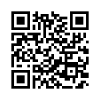TINDAK TUTUR PERMINTAAN DALAM BAHASA INDONESIA DI KALANGAN MAHASISWA
Downloads
determinant factors, and their special functions. The data sources were spoken requests by
students. The data were collected by taping them and were analyzed by grouping them and
interpreting them contextually. The results show that there are direct and indirect requests.
Direct requests are made in imperatives, and indirect requests are made in statements or
questions. Sometimes a combination of an imperative and a question and that of a question
and a question are employed in requests. Politeness in requests is marked by certain
expressions, such as tolong, ayo/yo/yok/yuk, mari, coba, maaf and mohon. The social
context influencing the choice of requests includes the intimacy of the speaker and
interlocutor, the speech situation, the age difference between the speaker and interlocutor,
and the speaker's cultural background. The special functions of requests include that of
asking for or borrowing an object, of asking the interlocutor to do something, of
welcoming, of inviting, and of prohibiting.
Keywords: speech act, form, function, politeness
Downloads
The authors who publish this journal agree to the following requirements. The author retains the copyright regarding the work being simultaneously licensed below Creative Commons Attribution ShareAlike License.

Jurnal Diksi by Faculty of Languages, Arts, and Culture, Universitas Negeri Yogyakarta is licensed under a Creative Commons Attribution-ShareAlike 4.0 International License.
Based on a work at http://journal.uny.ac.id/index.php/diksi




















